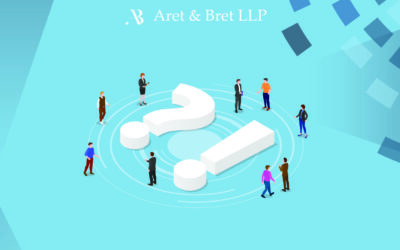This publication is part 2 of the FAQS on the Deduction of Tax at Source (Withholding) Regulations 2024 (‘the Regulations’). Part 1 of the publication can be found here.
It is worth noting that on 2 October 2024, the Regulations were gazetted. The gazetted copy of the Regulations is the official document of the Federal Government of Nigeria and supersedes the earlier copy circulated around June – July 2024. This publication provides additional answers, starting with the unanswered questions in part 1.
Question 11: Will the Regulations affect ongoing contracts?
The Regulations will not affect ongoing contracts that are concluded on or before 31 December 2024 as the commencement date has been adjusted in the copy just gazetted. The new commencement date is now 1 January 2025. The implication is that withholding tax rates stated in the Regulations would not apply to any ongoing contract until 1 January 2025 and ongoing contracts outside the withholding tax regime before the Regulations would continue to be so until January 2025. Companies that have started applying the new rates to ongoing contracts further to the commencement date contained in the earlier circulated copy are expected to stop and revert to the old regime till 1 January 2025.
Question 12: Is the gazetted copy of the Regulations different from the earlier circulated copy?
Yes. The gazetted copy introduced certain changes some of which are not substantial. To begin with, and as earlier mentioned, the commencement date in the gazetted copy is 1 January 2025 as opposed to 1 July 2024 found in the earlier copy. The new commencement/implementation date complies with the provisions of the National Tax Policy issued in 2017 which requires that the government should ‘ensure a reasonable transition period of three to six months before implementation of a new tax.’ The new commencement date is therefore commendable as it allows businesses to plan and prepare for the new withholding tax regime.
Moreover, the gazetted copy expanded the list of transactions that are exempt from withholding tax to include telephone charges, data and airline tickets.
Finally, the gazetted copy provides a format/template for making returns to the relevant tax authority as well as a format/template for the receipt to be issued to the taxpayer (a person from whom a deduction has been made) by the person withholding the tax.
Question 13: Is every transaction subject to withholding tax in Nigeria?
No. As already noted in the answer to question 12, certain transactions are exempt from withholding tax. One of such transaction is across-the-counter transactions which the Regulations define to mean ‘any transaction carried out between parties without an established contractual relationship or any prior formal contracting arrangement and in which payment is made instantly in cash or on the spot via electronic means ‘.
For a full list of the transactions that are exempt from withholding tax, please see the end of this publication. The transactions that are not exempt from the withholding tax regime are known as eligible transactions. For a full list of eligible transactions, please see part 1 of this publication which can be found here.
Question 14: What happens when a supplier insists that no deduction should be made from payment due to the supplier?
The deduction of withholding tax is a statutory obligation imposed on persons making the payment in eligible transactions and failure to so withhold the prescribed amount attracts penal sanctions. It is to be noted that the Regulations makes it clear that withholding tax deduction shall not be an additional cost of the contract or included in the contract price. It follows therefore that a supplier cannot lawfully insist that no deduction should be made from any payment due to the supplier under a contract. Such insistence is capable of exposing the person who ought to make the deduction to a penal sanction. This is because it is an offence not to make the deduction under the relevant Act and the Regulations and it is also an offence to pay a supplier the portion representing the required deduction under the Regulations.
The attention of suppliers should always be drawn to the mandatory statutory obligation to make the deduction and the need not to expose the party mandated by law to make the deduction to any penalty.
Question 15: Is failure to comply with the Regulations an offence in Nigeria?
Yes, it is an offence not to comply with the Regulations. For the avoidance of doubt, under para. 9 of the Regulations, it is an offence for a person required to deduct the tax at source to fail to do so. It is equally an offence for the person to fail to make the deduction and pay to the supplier or recipient the portion representing the required deduction. Finally, it is an offence to deduct the tax at source and fail to remit the amount deducted.
The offence of failing to deduct or failing to remit the amount deducted can be seen in s. 40 of the Federal Inland Revenue Service (Establishment) Act (the ‘FIRS Act’) and s. 74 of the Personal Income Tax Act (‘PITA”). The Regulation only included the offence of failing to deduct and paying to the supplier the amount or the portion representing the required deduction.
Question 16: What are the penalties for the offences mentioned above?
The Regulations did not prescribe a penalty different from the penalty stipulated under the relevant legislation which in this case is the FIRS Act and the PITA. However, the Regulations prescribed an administrative penalty for the ‘new offence’ created under the Regulations which is failing to deduct and pay to the supplier the amount or the portion representing the required deduction. In this regard, the relevant tax authority will issue the administrative penalty.
As already noted, the Regulations did not prescribe any separate penalty but clearly stated that the penalty under s. 40 of the FIRS Act or the penalty under s. 74 of the PITA would apply. S. 40 of the FIRS Act applies to deduction payable to the FIRS and required under the Capital Gains Tax Act, the Companies Income Tax Act and the Petroleum Profits Tax Act while s. 74 of PITA applies to deduction under the Personal Income Tax Act.
Under s. 40 of the FIRS Act, a person who fails to deduct or fails to remit what was deducted is liable upon conviction to pay the tax withheld or unremitted in addition to a penalty of 10 per cent of the tax withheld or unremitted per annum and interest at the prevailing Central Bank of Nigeria minimum rediscount rate and imprisonment for a period of not more than three years. Under s. 74 of PITA as amended in 2011, a person who ‘fails to deduct or having deducted fails to remit such deductions to the relevant tax authority within thirty days from the date the amount was deducted or the time the duty to deduct a rose, shall be liable to a penalty of an amount of 10 per cent of the tax not deducted or remitted plus interest at the prevailing monetary policy rate of the Central Bank of Nigeria.’
TRANSACTIONS EXEMPT FROM DEDUCTION AT SOURCE AS FOUND IN PARA. 10 OF THE REGULATIONS
- Compensating payments under a Registered Securities Lending Transaction in line with section 81(8) of the Companies Income Tax Act.
- Any distribution or dividend payment to a Real Estate Investment Trust or Real Estate Investment Company as provided under section 80(5) of the Companies Income Tax Act.
- Across-the-counter transactions as defined under these Regulations.
- Interest and fees paid to a Nigerian bank by way of direct debit of the funds which are domiciled with the bank.
- Goods manufactured or materials produced by the person making the supply.
- Imported goods where the transaction does not create a taxable presence in Nigeria for the foreign supplier.
- Any payment in respect of income or profit which is exempt from tax.
- Telephone charges, internet data and airline tickets.
- Out-of-pocket expense that is normally expected to be incurred directly by the supplier and is distinguishable from the contract fees.
- Insurance premium.
- Supply of Liquefied Petroleum Gas (LPG), Compressed Natural Gas (CNG), Premium Motor Spirits (PMS), Automotive Gas Oil (AGO), Low Pour Fuel Oil (LPFO), Dual Purpose Kerosene (DPK), and JET-A1.
- Commission retained by a broker from money collected on behalf of the principal in line with the industry norm for such transactions.
- winnings from a game of chance or a reality show with contents designed exclusively to promote entrepreneurship, academics, technological or scientific innovation
Note:
This article does not constitute a legal advice. For proper legal advice or inquiries on the issues raised in this article or general inquiries relating to withholding tax and taxation in Nigeria, please contact Aret & Bret LLP at [email protected]. You can also reach out to the author:
ISDORE OZUO
Managing Partner, Aret & BRET LLP
[email protected]
+234 (0) 703 171 4942
+234 (0) 706 757 9577
www.aret-bret.com




